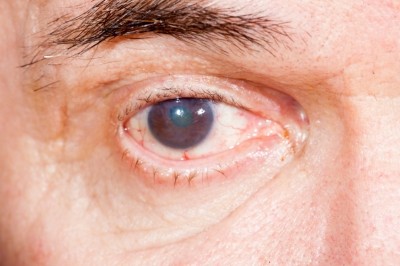Daily multivitamin supplement may decrease cataract risk in men: RCT data

The findings from the large-scale placebo-controlled trial, published in Ophthalmology, suggest that long-term supplementation with a multivitamin may reduce the risk of developing cataract by around 9%. This risk was even lower, at 13%, for nuclear cataract, which occurs at the centre of the lens and is the most common variety of cataract associated with the aging process, said the team.
"If multivitamins really do reduce the risk of cataract, even by a modest 10 percent, this rather small reduction would nonetheless have a large public health impact," explained William Christen, ScD, of Harvard Medical School - who led the study.
Christen and his colleagues noted that their findings regarding cataract risk-reduction are consistent with results of two prior trials of multivitamin use in cataract prevention, adding that when taken together the findings indicate that long-term daily multivitamin use "may have a small to moderate beneficial effect on risk of cataract, particularly nuclear cataract."
AMD risk?
Despite the positive findings for cataract prevention, the team failed to find a significant benefit in risk reduction for age-related macular degeneration (AMD). Indeed, the authors noted that a 'slight', though statistically non-significant increase in risk was found for AMD - adding that further studies are needed to explore any potential association.
"This finding of more cases of AMD in the multivitamin group than in the placebo group, although not statistically significant, does raise some concerns," added Christen. "Clearly, this finding needs to be examined further in other trials of multivitamin supplements in both men and women."
RCT details
Christen and his colleagues based at Brigham and Women's Hospital and Harvard Medical School conducted the randomised, double-blind study from 1997 to 2011 in a study group of 14,641 U.S. male doctors age 50 and older, as part of a trial known as PHS II.
Half took of the group took a common daily multivitamin, as well as vitamin C, vitamin E and beta carotene supplements, while the other half received placebo.
The team followed the participants to identify how many participants in each group developed new cases of cataract and AMD - finding that in the placebo group 945 cases of cataract developed, which were self-reported and confirmed by medical records, while only 872 cases of cataract developed in the multivitamin group.
This represents a small yet significant 9% decrease in risk, noted the team.
However, when it came to AMD risk, the researchers found there were 152 new cases of visually significant AMD in the multivitamin group compared to 129 in the placebo group. While the occurrence of AMD was higher in the multivitamin group, Christen and his team noted that this difference was not statistically significant.
Contradictory findings?
The team added that while their findings may seem to contradict results of other studies, such as Age-Related Eye Disease Study (AREDS), it must be noted that the two studies had different nutrient supplements, dosing and objectives.
Indeed, all of the nutrients were provided to the current trial participants were at the U.S. Recommended Dietary Allowance dose levels, and as such were much lower than the AREDS supplements.
Furthermore, they noted that the objective in AREDS was to prevent AMD progression among persons who already had the disease, whereas the objective of PHS II was to prevent new cases of AMD, and thus persons with a diagnosis of AMD at baseline were not included.
They added that the recent AREDS2 results would suggest other nutrients such as lutein and zeaxanthin may be an appropriate substitution for beta-carotene in formulations.
Source: Ophthalmology
Volume 121, Issue 2, February 2014, Pages 525–534, doi: 10.1016/j.ophtha.2013.09.038
"Effects of Multivitamin Supplement on Cataract and Age-Related Macular Degeneration in a Randomized Trial of Male Physicians"
Authors: William G. Christen, Robert J. Glynn, et al
















